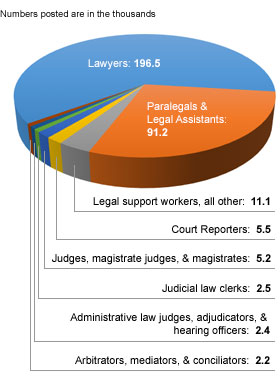The field of criminal justice contains a broad range of careers, all which typically require dedication and an eye for detail. From court positions to being an officer of the law, criminal justice professionals could also expect change from one day on the job to the next, as law and policies could change regularly. Have you ever watched a film where a prosecuting attorney builds an ingenious case against a defendant and wondered what it would feel like to put away a lawless criminal? Do you ever wish you played a part in the construction and implementation of the law itself? With the right education and some hard work, a career in criminal justice could be just the thing for you.
Online Programs
Students today can take advantage of the wealth of opportunity in online degree programs, and if you’re looking to launch a career in criminal justice, this could be especially beneficial. An online degree is designed with busy students in mind – those students who maybe work full-time or maybe split their time between two studies. For criminal justice specifically, many types of programs are available to students and range from the associate to master’s degree level and higher.
Of course, the nature of your program will depend largely on your area of focus. For example, those looking to be a lawyer should enroll in pre-law preparation courses that could earn them a bachelor’s degree and then apply to law schools. Students might also want to consider their options for attaining graduate level degrees online. A graduate degree could make you more competitive in the eyes of employers and also offers a chance to polish the necessary skills you might need to excel in your career.
Right now might be better than ever to consider pursuing an education toward a career in criminal justice, as many jobs in the field are expected to grow over the next decade. According to the Bureau of Labor Statistics, for example, the employment of private detectives and investigators is projected to grow 11% from 2012 to 2022. This could be partly due to technological advances, which have led to more cybercrimes and the need to safeguard sensitive information. However, becoming a private detective – like many jobs in law enforcement – may require additional training and licensing. Be sure to research and speak with a representative from your institution to make sure you are on the proper track and prepared for everything you’ll need to complete in route to a potentially successful career.
Citation
Bureau of Labor Statistics, U.S. Department of Labor, Occupational Outlook Handbook, 2014-15 Edition, Private Detectives and Investigators,
on the Internet at http://www.bls.gov/ooh/protective-service/private-detectives-and-investigators.htm (visited October 13, 2014).
